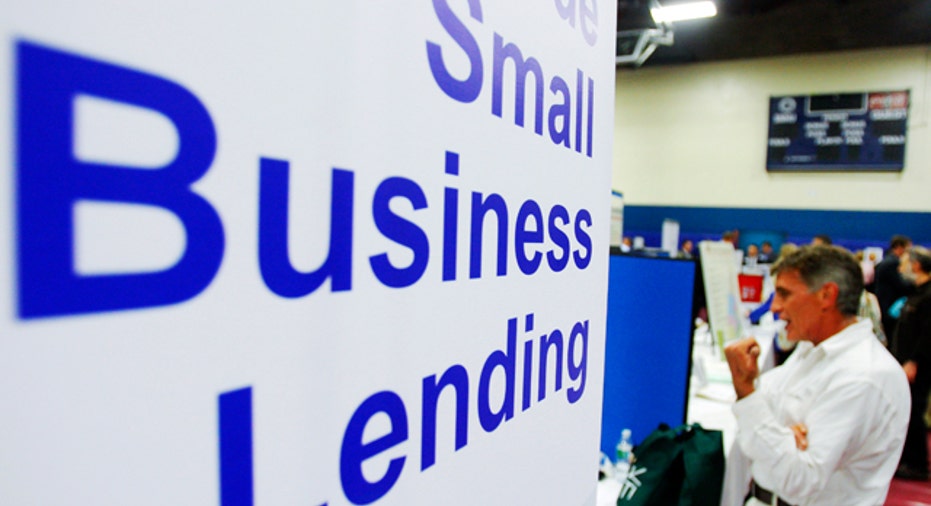Four Alternative Lending Options for Entrepreneurs

When the credit crunch began in late 2008, traditional banks tightened the spigots on funding for small businesses. When the big banks said no, small banks and non-bank lenders increasingly said yes. While big banks reject loan applications almost nine out of ten times, and smaller banks approved less than half of small business funding requests, alternative lenders filled the void.
According to the Biz2Credit Small Business Lending Index (figures for the month of July 2012), big banks (institutions with more than $10 billion in assets) approved 11.3% of small business loan requests, while smaller banks gave the green light to 47.4%. Meanwhile, non-bank lenders picked up the slack. Credit unions approved 54.6% of requests, while alternative lenders, such as Cash Advance Network (CAN) and accounts receivable financers, okayed 64.1% of requests for funding from small companies.
So who are the alternative lenders? They are comprised of non-banks, such as credit unions, CDFIs, micro lenders and accounts receivable financers.
Credit Unions
A credit union is a cooperative, not-for-profit financial institution owned that is controlled by its members. They provide credit at competitive rates and other financial services to their members. Typically, credit unions are locally focused and lend at reasonable rates, which resulted in their increased importance in small business lending during 2012.The largest credit union in the country is Merrifield, VA-based Navy Federal Credit Union, which has $36.4 billion in assets and serves Army, Marine Corps, Navy, Air Force, Defense Department employees and their families.
Credit unions have become aggressive in soliciting deposits and are supporting legislation introduced by Sen. Mark Udall that would more than double the 12.5 percent cap on small business lending set by the government.
Community Development Financial Institutions (CDFI)
As their name indicates, Community Development Financial Institutions (CDFIs) are financing entities focused primary on community development. CDFIs are certified by the Treasury Department, which provides funds to them through a variety of programs. One such example is the New York Business Development Corporation (NYBDC) in New York City. The organization helps small businesses that frequently are unable to meet the requirements for traditional financing secure term loans. In many cases, the financing incorporates multiple participations, SBA guarantees, flexible amortization, and long-term payouts.
Micro Lenders
Micro lenders provide small loans designed to spur entrepreneurship in economically disadvantaged areas. Often they are granted to women and minority entrepreneurs and to companies that have been established in economic empowerment zones. Entrepreneurs in these neighborhoods often lack collateral or a long credit history and thus are unable to meet even the most minimal qualifications of traditional lenders, such as banks.
ACCION USA is a microfinance organization that lends with the mission of empowering business owners with access to working capital and financial education. ACCION offers business loans up to $50,000 and financial education throughout the U.S. and specializes in working with small business owners who cannot borrow from the bank due to business type, a short length of time in business, or an insufficient credit history.
Accounts Receivable (AR) Lenders
Accounts Receivable (AR) financers -- often known as "factors" -- purchase a company's accounts receivable at a discount and then provide the business owners with working capital when they need it. Factoring provides the seller of the accounts in the form of a cash "advance," often 70-85% of the purchase price of the accounts. The balance of the purchase price is paid upon collection, often as a percentage of credit card transactions. Interest rates generally are higher with factoring. However, the lender is assuming a higher level of risk, which justifies the return. Many times, small business owners who have little or no credit history or who need a lot of money quickly turn to AR financers.
American Express Merchant Financing enables small and medium-sized businesses to access up to $750,000 within three business days at competitive pricing. In fact, the company can be credited for helping to lower interest rates significantly for the entire category by offering rates as low as 6.5%. Merchant cash advance programs offer hassle-free, innovative financing products developed to address the cash flow and capital expenditure needs of small and medium-sized businesses.
Although credit markets have eased for small businesses, it is still by no means easy to secure capital from big banks, despite their claims otherwise. Through necessity, entrepreneurs learned that to get the best rates, they had better shop around. Technology has enabled them to do so more quickly and easily than ever before.
This opinion column was written by Rohit Arora, co-founder and CEO of Biz2Credit, an online resource that connects small business owners with 1,100+ lenders, credit rating agencies, and service providers such as CPAs and attorneys via its Internet platform. Since 2007, Biz2Credit has secured more than $600 million in funding for thousands of small businesses across the U.S.



















